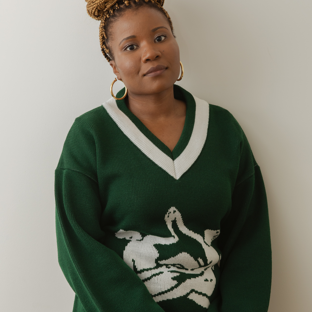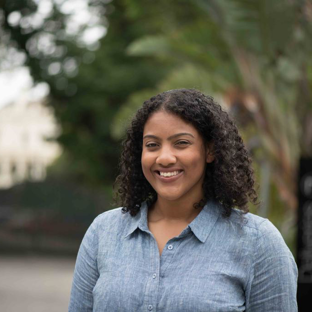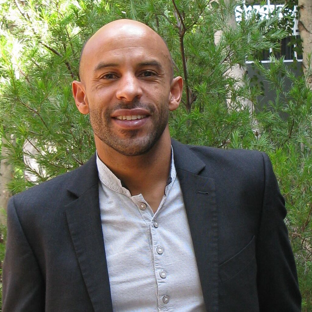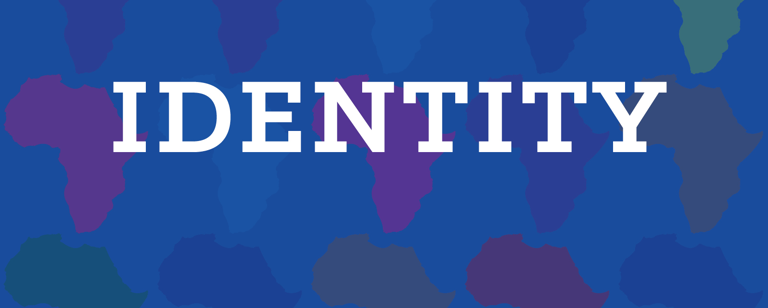African-Australians can face prejudice in their everyday lives, whether it’s increased likelihood of harassment by police or lazy assumptions that they come from backgrounds of poverty or violence. But identifying as African-Australian is also a source of strength, providing community ties and connecting to a rich culture.
What does it mean to be an African-Australian? Who is an African-Australian … and why is it personally important for Australians with African ancestry to embrace and own it?
We’ll look at this subject from a range of African perspectives. Featuring host Santilla Chingaipe, with Hawiine, Kirk Zwangobani and Monica Forson.
Featuring

Santilla Chingaipe
Santilla Chingaipe is a filmmaker, historian and author, whose work explores settler colonialism, slavery, and postcolonial migration in Australia. Chingaipe’s critically acclaimed and award-winning documentary Our African ...
Hawiine
Hawiine, known in equal fondness as Soreti Kadir, is a multidisciplinary artist. Most well known for her expression as a performance poet, writer, musician, organiser and speaker, her practice is always developing to better communicate her message.
A lover of storytelling, Hawiine recently released her second collection of written work, 167 Ways To Love, available as an ebook. Her most recent musical work is a compilation of poetry and music, titled Pride’s Claw, available on Soundcloud.

Monica Forson
Monica Forson is co-founder and president of the Afro-Australian Student Organisation, a member of the Multifaith Multicultural Youth Network, and youth advisor for the Ghana Association of Australia.
Monica is a young woman of mixed Ghanaian and Australian descent who is currently undertaking a Master of Social Work at the University of Melbourne. A former president of the Africa Club at the University of Melbourne, Monica is the inaugural cofounder of Afro-Australian Student Organisation – which represents the interests of African students, providing them with tailored, culturally relevant services and an arena to network and form meaningful relationships.
She is a current finalist for the National Youth Week Youth Leadership Award.
She was a recipient of the 2014 Victorian African Community Youth Leadership Award and the 2013 Leaders in Communities Award from the University of Melbourne, which she received for her extensive voluntary and leadership experience in the community.
She is a member of the Multifaith Multicultural Youth Network, providing advice to the Victorian Government through the Office of Multicultural Affairs and Citizenship on issues and initiatives that affect young Victorians from culturally, religiously and linguistically diverse backgrounds; youth advisor to the Ghanaian Association of Victoria; steering committee member of Africa Day Australia, African Music and Cultural Festival and African Review Panel; and volunteer at the Asylum Seeker Resource Centre.
Monica is passionate about advocating for multicultural youth to be engaged in youth led organisations, education and employment. She wants to make a positive change to inspire and work directly with other young people to change the perceptions society holds about multicultural youth – and hopefully make the world a bit easier for the next generation to live in.

Kirk Zwangobani
Kirk Zwangobani was born and educated in Canberra, Australia where he now lives and works as an executive teacher. Kirk is an early career researcher who has theorised extensively on the formation of an African Australian identity and belonging, working across a number of fields including postcolonialism, philosophy, cultural studies and education.
In his doctorate research, Kirk undertook a sociological study with intergenerational youth of African heritage in Canberra. He developed a thesis on the dynamics of becoming African Australian.
In addition to research and professional teaching, Kirk has collaborated and consulted on projects and policy development in the education and community sectors in Canberra. These include student voice initiatives and primary prevention education to address issues around sexuality, gender, and race. Kirk is a member of the ACT Multicultural Youth Affairs Network reference group.
